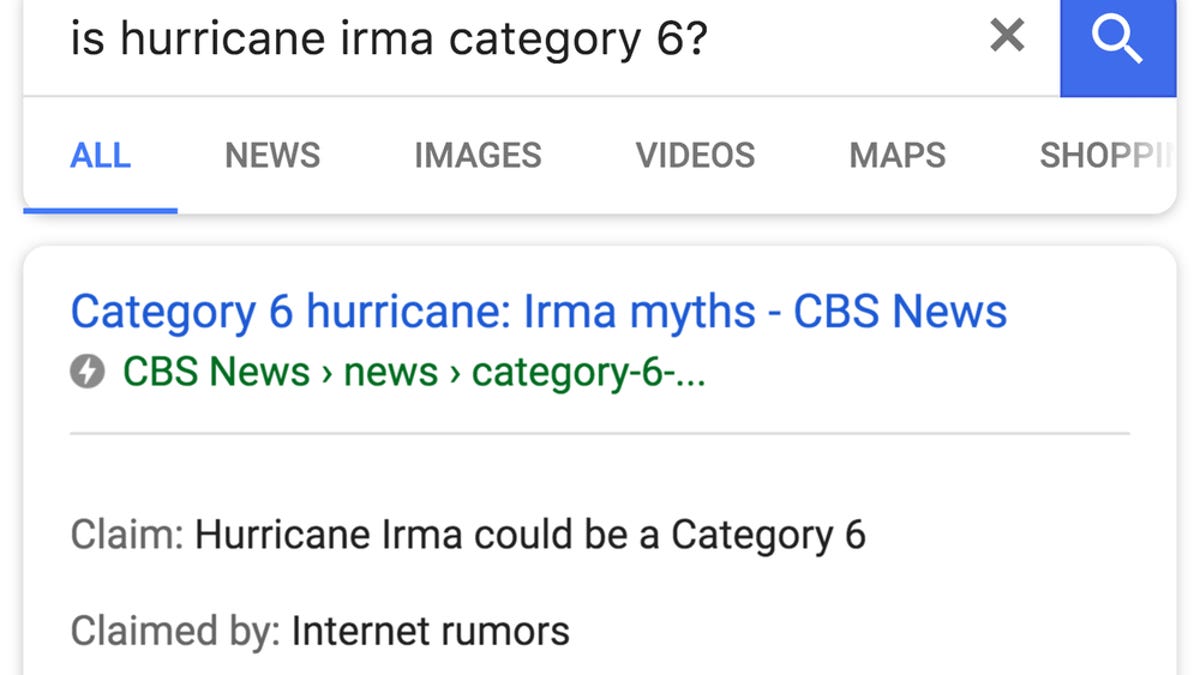Google doubles down on fact-checking the internet
After being criticized for not catching fake news online, the tech giant partners with a fact-checking network to better comb the internet.

This is what it looks like when Google fact-checks claims online.
When you google something, it's not always clear if the answer that emerges is real or fake. This is something Google has grappled with over the past year as it tries to get a handle on viral propaganda and internet hoaxes.
To battle the phenomenon of "fake news," Google said Thursday that it's partnering with the International Fact-Checking Network at The Poynter Institute. The idea is to enlist the network's help to increase the number of verified fact checkers on the internet.
"Fact checking articles -- when a journalist looks at one single statement or issue and either verifies or debunks it -- is important in today's climate because it helps readers better understand viral news stories and relevant issues," Erica Anderson, partnerships manager at Google News Lab, wrote in a blog post.
The spread of fake news has caused public scorn for companies like Google, Facebook and Twitter, as the tech giants have failed to keep up. Google has pledged to help stop the spread of fake news, but the false content has still found a way to slip past the search engine.
An internal Google investigation also found that Russian operatives spent tens of thousands of dollars on ads across Google's properties, including in search results, YouTube and Gmail. The ads were reportedly part of a campaign to influence the 2016 US presidential election.
Google introduced a feature last year called "Fact Check tag," which shows people when a news or fact checking organization has verified or debunked the claim. The company said thousands of fact checked articles now appear in Google search results.
Along with increasing the amount of fact checkers on the internet, Google's partnership with the International Fact-Checking Network also aims to bring fact checking to more countries worldwide. Google will also provide the network with training and free fact-checking tools.
It's Complicated: This is dating in the age of apps. Having fun yet?
Tech Enabled: CNET chronicles tech's role in providing new kinds of accessibility.

